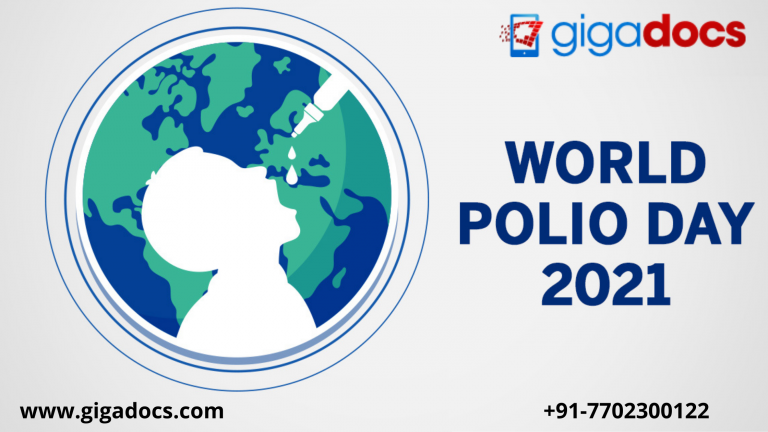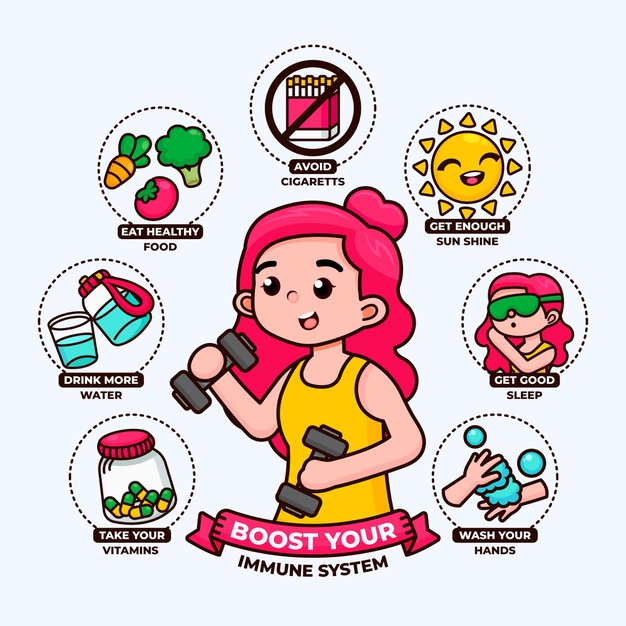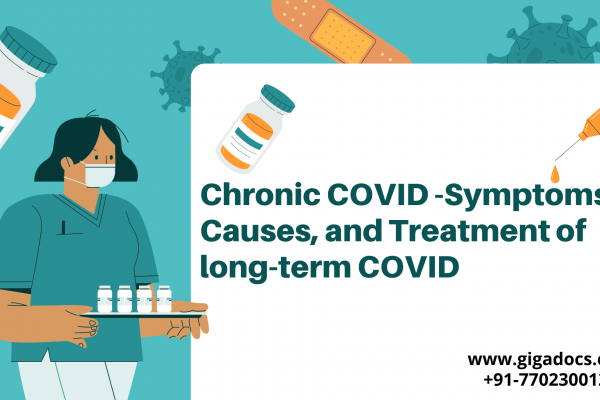Polio is a contagious viral infection that damages the nerve, leads to troubled breathing in its most severe form. Poliomyelitis can result in temporary or permanent muscle paralysis, disability, bone deformities, and in extreme cases, even death. This October, on World Polio Day, let’s talk about the transmission, symptoms, prevention, polio vaccination, and polio treatment with Gigadocs.
Infectious Diseases Polio | Polio Transmission
Children under the age of five are the ones principally affected by polio. Anyone who has not been immunized, on the other hand, is in danger of contracting the disease Poliovirus remains very contagious and resides in the throat and intestines of the affected. An infected person can transfer the virus to others immediately and for up to two weeks after symptoms develop. Poliovirus infects only humans and enters the body through the mouth, and spreads via:
- Contact with an infected person’s excreta (poop).
- Droplets from an infected person sneeze or cough (less common).
Poliovirus | Mild, Severe Symptoms and Post-polio Syndrome
Mild Poliovirus Symptoms-
One in every four people (or 25 out of every 100) infected with poliovirus will experience flu-like symptoms that normally last 2 to 5 days before going away on their own. Among these symptoms are:
- Sore throat
- Fever
- Tiredness
- Nausea
- Headache
- Stomach pain
Serious Poliovirus Symptoms-
The most severe polio symptom is paralysis, which can result in permanent disability and death. Because the virus damages the muscles that help people breathe, between 2 and 10 people out of every 100 who develop paralysis from poliovirus infection die. A significantly lesser number of patients with poliovirus infection (less than one in 100, or 1-5 out of 1000) will develop other, more severe symptoms affecting the brain and spinal cord:
- Anesthesia.
- Meningitis. It affects about 1 in every 25 people infected with poliovirus.
- One in every 200 people infected with poliovirus suffers from paralysis or weakness in the arms, legs, or both.
Post-Polio Syndrome
Even children who appear to have fully recovered from polio can develop new muscle pain, weakness, or paralysis as adults 15 to 40 years later. This is known as post-polio syndrome.
Pulse Polio Programme | Polio Prevention
Polio vaccination protects children by training their bodies to resist the poliovirus. Almost all youngsters who receive all recommended doses of the inactivated polio vaccine get protection against polio. Polio vaccinations are available in two variations:
- According to the patient’s age, the inactive poliovirus vaccine (IPV) is given as an injection in the leg or arm.
- Oral poliovirus vaccine (OPV) is extensively used in many parts of the world, including India as effective protection against polio.
| World Polio Day World Polio Day is marked to commemorate the birth of Jonas Salk, the American researcher who developed the first polio vaccine on October 24, 1955. Following Jonas Salk, Albert Sabin developed the first monovalent oral polio vaccine in 1961, succeeded by the trivalent oral polio vaccine in 1963, which proved to be a major success in eliminating polio worldwide |
Pulse Polio Immunization | Polio Drops
The Pulse Polio Immunization Programme in India began on October 2, 1994, when the country accounted for nearly 60% of global polio cases. On January 13, 2011, the last polio case was reported in Howrah, and the country has been polio-free ever since. On March 27, 2014, India and the entire South-East Asia Region gained a ‘Polio-free accreditation.’
Polio Vaccination | IPV vaccine
Children usually get the inactivated poliovirus vaccine (IPV) at ages two months, four months, 6–18 months, and 4–6 years. IPV is sometimes given in a combination vaccine with other vaccines.
Polio Treatment | Poliovirus Immunization with Gigadocs
As many as 200,000 new cases could occur each year around the world during the next ten years. Though we as a country are Polio free, still no child anywhere is safe until we have vaccinated every child. Gigadocs brings the immunization schedule for all the parents to help them track all the vaccinations of their children, with their child’s date of birth. Gigadocs assures that with this feature, parents will never miss their child’s next vaccine schedule.
At Gigadocs, we are committed to providing the best medical treatment supported by our skilled doctors for your complete family’s healthcare needs. Our medical practitioners are only a video/phone call away for consultations for chronic and non-chronic illnesses.
Download Gigadocs app from-
- IOS App – apple.co/2W2iG4V
- Android App – bit.ly/33AQoRC
To know more and schedule a Virtual Consultation demo, Email at info@gigadocs.com




